Craig Barry, Accountant and Business Advisor shares his comments on the 2022-23 Federal Budget. While describing it as ‘a bit dull’, he did manage to identify five gems that he believes provide worthwhile tax concessions and incentives.
This year’s Federal Budget was all a bit dull really. There wasn’t a lot in it that we didn’t already know about, but for those in the mining and resources sectors there were at least five gems that provide worthwhile tax concessions and incentives.
These include announcements for upskilling your workforce, digitising your business and of course, the temporary reduction in the fuel excise tax will provide welcome relief for an industry reliant upon fuel.
Unlike last year’s cash splash, the 2022-23 Federal budget was safe. It was very much a pre-Election Budget which provided more of a confirmation of spending and continuation of initiatives that had already been announced in the pre-Budget media than anything particularly new. As far as Budget benefits for mining and resources business owners and professionals, these are my top five:
#1: Upskilling the team
A handsome extra 20% tax deduction will apply to eligible external training courses for employees that are incurred between 1 July 2022 and 30 June 2024. There are also incentives for taking on apprentices including up to $15,000 in wage subsidies.
#2: Deductions for digitising your business
For businesses with an aggregated annual turnover of less than $50m, an additional 20% tax deduction on costs incurred for digital adaption, which may include purchases of anything from portable payment devices, cloud-based service subscriptions to cyber security.
It’s important to note that eligibility details are yet to be revealed, but for business owners currently considering investment in this area, it may be worth holding current projects until after 1 July to take advantage of this concession if it comes to fruition.
#3: Cashflow & Cost Savings
The reduction of the fuel excise tax, even for six months, is a welcome cost saving for businesses (and individuals) with substantial fuel related expenditures.
So too is the reduction in the GDP uplift on PAYG and GST instalments from 10% to 2%. This will enable cash to remain in the business assisting cashflow and allowing it to be used more effectively as working capital. This will be available to businesses with an aggregated turnover of up to $10m in GST instalments and an annual aggregated turnover of up to $50m for PAYG instalments.
As a further cashflow benefit, the Government has also announced its intention to change the PAYG instalment system. Currently PAYG instalments are required to be calculated on the company’s most recent tax return, the Government intends to provide a real-time option that aligns PAYG liabilities with real-time current year profitability. This is expected to be in place by 31 December 2023.
#4: More Tax Data Sharing
The Government has also announced its intention to implement more data matching and data sharing as it expands its Single Touch Payroll system. The intention is to create efficiencies using something of a one-stop shop for reporting that would share information with aligned agencies including the ATO, State Revenue offices (for payroll tax reporting), Work Cover and potentially others. With this initiative comes a warning for business owners to ensure their reporting is in order and consistent.
#5: More Individual responsibility for wealthy business owners
This year’s Budget announced $650m for ramping up the ATO’s tax avoidance task force activities. Over the last couple of years, the Government has implemented measures focused on the Top 500 and Next 5000 privately owned companies making it clear they expect private business owners to take on greater tax governance responsibility. For these business owners and individuals, it will be important to maintain robust and reliable financial data systems and to expect more ATO attention.
Finally, for those with Executive Share Schemes, while the current tax treatment hasn’t changed, there will be a reduction in the disclosure requirements under the Corporations Act where a participant pays no more than $30,000 per year to acquire the interests or where a participant can immediately profit from a planned sale or listing of a company.
For advice and support for business leaders please call +61 (0) 7 3007 2080 or email contact@executivestrategies.com.au
Executive Strategies is a specialised information hub for executives and senior managers who may have founded their own business or who work for growing private, ASX listed companies or government businesses. Its purpose is to provide access to specialist advisers and information that addresses the often-complex issues affecting their personal prosperity.








